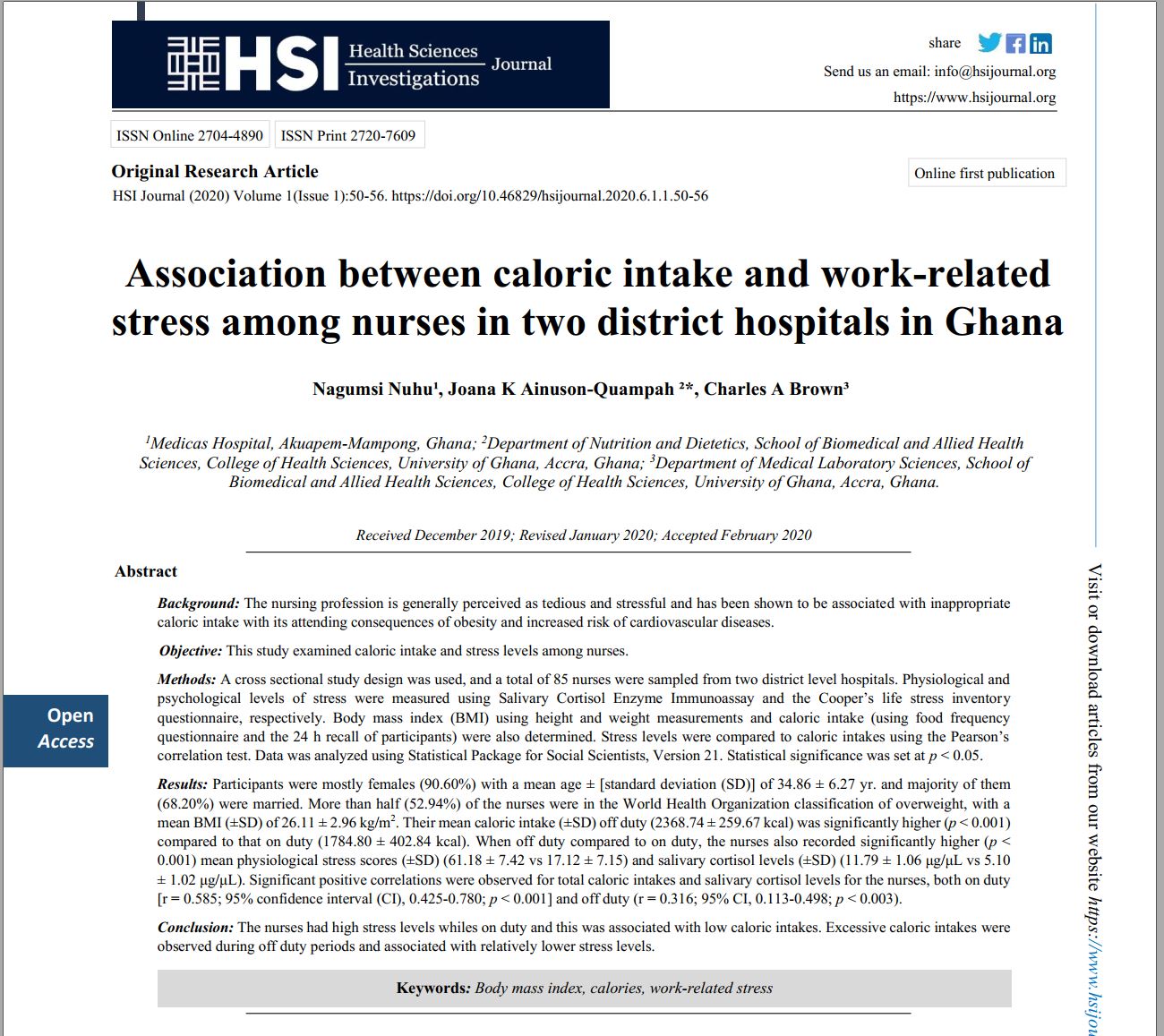Association between caloric intake and work-related stress among nurses in two district hospitals in Ghana
Association between caloric intake and work-related stress among nurses
Abstract
Background: The nursing profession is generally perceived as tedious and stressful and has been shown to be associated with inappropriate caloric intake with its attending consequences of obesity and increased risk of cardiovascular diseases.
Objective: This study examined caloric intake and stress levels among nurses.
Methods: A cross sectional study design was used, and a total of 85 nurses were sampled from two district level hospitals. Physiological and psychological levels of stress were measured using Salivary Cortisol Enzyme Immunoassay and the Cooper’s life stress inventory questionnaire, respectively. Body mass index (BMI) using height and weight measurements and caloric intake (using food frequency questionnaire and the 24 h recall of participants) were also determined. Stress levels were compared to caloric intakes using the Pearson’s correlation test. Data was analyzed using statistical Package for Social Scientists, Version 21. Statistical significance was set at p < 0.05.
Results: Participants were mostly females (90.60%) with a mean age ± [standard deviation (SD)] of 34.86 ± 6.27 yr. and majority of them (68.20%) were married. More than half (52.94%) of the nurses were in the World Health Organization classification of overweight, with a mean BMI (±SD) of 26.11 ± 2.96 kg/m2. Their mean caloric intake (±SD) off duty (2368.74 ± 259.67 kcal) was significantly higher (p ˂ 0.001) compared to that on duty (1784.80 ± 402.84 kcal). When off duty compared to on duty, the nurses also recorded significantly higher (p < 0.001) mean physiological stress scores (±SD) (61.18 ± 7.42 vs 17.12 ± 7.15) and salivary cortisol levels (±SD) (11.79 ± 1.06 μg/μL vs 5.10 ± 1.02 μg/μL). Significant positive correlations were observed for total caloric intakes and salivary cortisol levels for the nurses, both on duty [r = 0.585; 95% confidence interval (CI), 0.425-0.780; p < 0.001] and off duty (r = 0.316; 95% CI, 0.113-0.498; p < 0.003).
Conclusion: The nurses had high stress levels whiles on duty and this was associated with low caloric intakes. Excessive caloric intakes were observed during off duty periods and associated with relatively lower stress levels.


